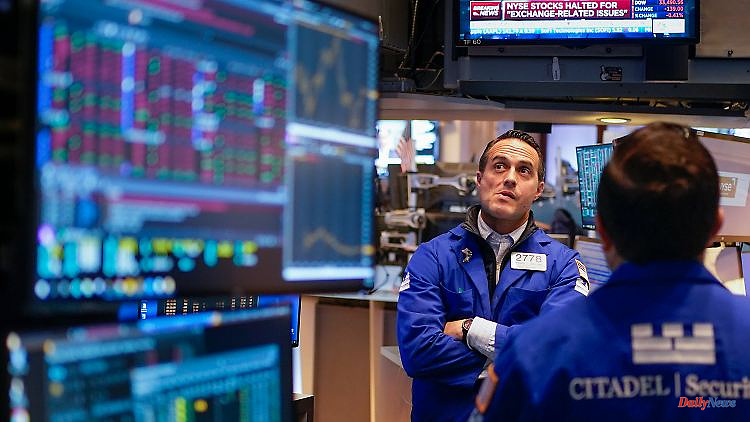Russia's announcement that it will cut oil production from March is driving prices higher on Wall Street. Investors fear that inflation will rise as a result. This puts a strain on tech papers in particular.
Recent concerns about inflation and interest rates have once again weighed on US technology stocks. These fears were reinforced at the end of the week by sharply rising oil prices and robust economic data: consumer sentiment brightened more than expected in February. The consumer climate survey by the University of Michigan rose to its highest level in a year.
The tech-heavy Nasdaq 100 fell 0.62 percent to 12,304.92 points. The standard stocks, on the other hand, have stabilized after their recent price losses. This is how it went for the market-wide S
The announcement by Russia that it would cut oil production from March because of the upper price limit for Russian crude oil decided by the West, drove oil prices up and fueled inflation concerns. If prices rise significantly, investors ultimately fear that interest rates will continue to rise. Higher interest rates, in turn, tend to weigh on the stock market because it makes other asset classes more attractive.
Yields on the bond market had already increased noticeably before the weekend. Investors are now eagerly awaiting January's inflation figures, which are due out next Tuesday. Technology stocks continued to be avoided, as their often high valuations are usually fueled by hopes of sizeable gains in the future. From today's perspective, however, these are worth less with rising interest rates.
The shares of the car manufacturer Tesla and those of Nvidia lost a good five and almost five percent respectively. With a price gain of currently 45.5 percent since the beginning of the year, the papers of the chip group 2023 have also been exceptionally strong so far. The topic of artificial intelligence inspired. Shares in the ride broker Lyft fell by more than a third after quarterly figures and a disappointing outlook. In the United States, ride-sharing has almost completely recovered from the pandemic, but Lyft has not, wrote JPMorgan analyst Douglas Anmuth. The final quarter of Lyft was simply "to forget", the expert Brad Erickson from the Canadian bank RBC drew a sobering conclusion.
Bucking the trend, Paypal's shares gained three percent. The online payment service had grown significantly by the end of the year despite fears of inflation and recession. On S
The euro suffered from the robust US data and was last listed at 1.0679 US dollars. The European Central Bank had previously set the reference rate at 1.0690 (Thursday: 1.0771) dollars. The dollar thus cost 0.9355 (0.9284) euros. Against this backdrop, US government bonds also came under pressure. Most recently, the futures contract for ten-year bonds (T-Note Future) fell by 0.32 percent to 112.67 points. In contrast, the yield on ten-year government bonds rose to 3.75 percent.












